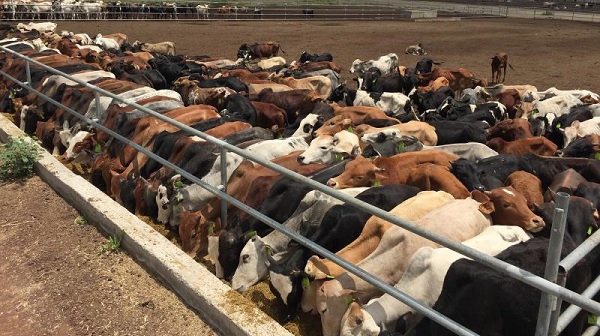
The CGIAR Research Program on Livestock covered major animal health constraints and their effects, and how the planned interventions will help to solve the problems
By Beamlak Tesfaye (ILRI)
With more than 55 million sheep and goats, Ethiopia is endowed with the largest small ruminant population in Africa. They contribute substantially to the livelihoods of smallholders as a source of income, food, and raw materials among others. Yet, the sector’s productivity remains low mainly due to lack of improved animal health services.
The livestock health flagship of the CGIAR Research Program (CRP) on Livestock is supporting the transformation of small ruminant value chain in Ethiopia. To this end, an integrated approach to tackle key livestock health-related challenges has been devised.
The animal health interventions are implemented by the Small Ruminant Value Chain Transformation in Ethiopia (SmaRT) project in collaboration with the International Center for Agricultural Research in the Dry Areas (ICARDA) and through the CRP on Livestock with the support of the Swedish University of Agricultural Sciences (SLU).
Over the last two years, participatory epidemiology and gender studies combined with serological surveys were conducted to identify the livestock disease constraints that smallholders in the country face. Respiratory diseases, internal parasites, reproductive problems and coenuruses were among the disease challenges identified.
The study also confirmed that women play a major role in small ruminant production. They are involved in feeding and watering livestock, animal health management, cleaning and assisting during delivery.
To address these challenges the following animal health interventions have been developed:
- An integrated herd health approach is being implemented to reduce the impact of respiratory diseases.
- Community-based strategic internal parasite control has been rolled out.
- The causes of reproductive health problems in small ruminant are being systematically investigated and a control strategy to address them designed.
- Community-based coenurosis control has been introduced.
In addition, tailored training workshops were organized for 639 (31% female) smallholders, enumerators and development agents in selected project sites in the Amhara, Tigray, Oromia and the Southern Nations and Nationalities regions. The training sessions covered major animal health constraints and their effects, and how the planned interventions will help to solve the problems.
Men and women champion farmers were selected from the trainees in each project site and they will assist the project in collecting data from the community.
Read the complete story at CRP on Livestock
——
See also:
- Transforming Ethiopia’s Livestock Sector
- The Insurance Provided by Ethiopian Livestock
- Largest Ever Micro-insurance Payout Made to Ethiopian Pastoralists
- Need for Improved Technological Applications Stressed to Enhance Livestock Production
- Arsi University College of Agriculture and Environmental Science Launches Two New Programs
